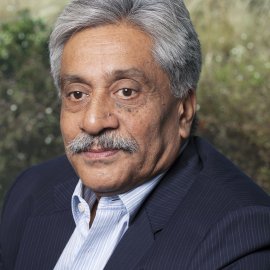Law, Jawaharlal Nehru University, India

Octobre 2018 à Mars 2019
Professor Dr. B.S.Chimni retired in 2017 as Professor of International Law, School of International Studies, Jawaharlal Nehru University. He served as Vice Chancellor of the West Bengal National University of Juridical Sciences, Kolkata (2004-2006). He has been a visiting professor at Brown and Tokyo Universities and held visiting positions at Harvard, Cambridge, Minnesota, and York universities. He is an associate member of Institut de Droit International, and a Member of the Academic Council of the Institute for Global Law and Policy, Harvard Law School. He sits on the editorial board of several international journals including the American Journal of International Law. He is the Editor-in-Chief of the Indian Journal of International Law. He is associated with the Third World Approaches to International Law (TWAIL), a network that articulates a critique of contemporary international law and institutions from the perspective of the Global South. His areas of research interest include international legal theory, international economic law, and international refugee law. His most recent publications include the second edition of his book International Law and World Order: A Critique of Contemporary Approaches (Cambridge University Press, 2017) and a co-edited book (with Siddharth Mallavarapu) International Relations: Essays for the Global South (Pearson, 2012).
Pathways to the Future: International Law and Global Justice
A global society is being woven together by hyper mobile capital on the basis of the continuing information and communications revolution. A whole host of questions arise in this respect. Is a global social formation coming into existence? What is the role that international law and institutions are playing in the process? What kind of global political structures can cope with the problems of an unevenly developed global society? Is a global ruling class emerging? Can the idea of a global parliament materialize? Will some form of global citizenship emerge? In the emerging scenario is the realization of global justice possible? Given their reliance on methodological nationalism, mainstream theories of international relations and international law are ill-equipped to address these questions. There is also no sustained engagement in the literature with the idea of global justice. A central task of the proposed research would be to explore these questions and identify the possible role that international law and institutions can play in working towards the goals of Global Democracy and Global Justice.